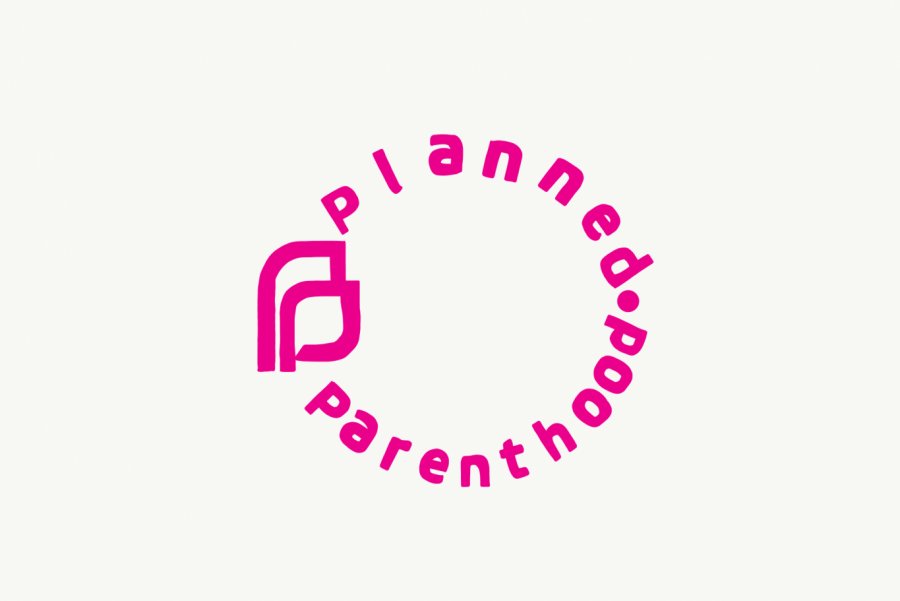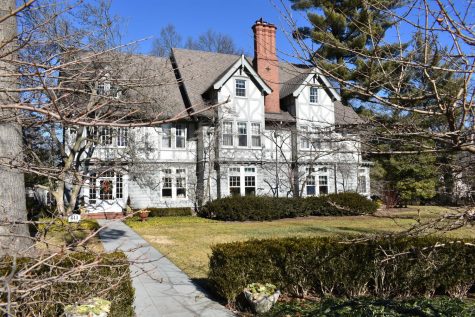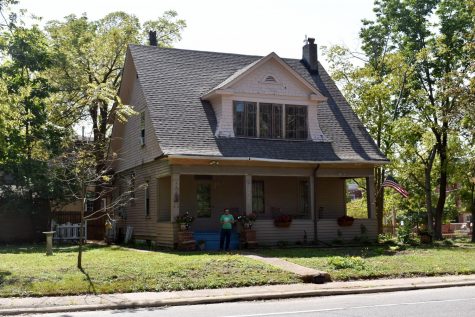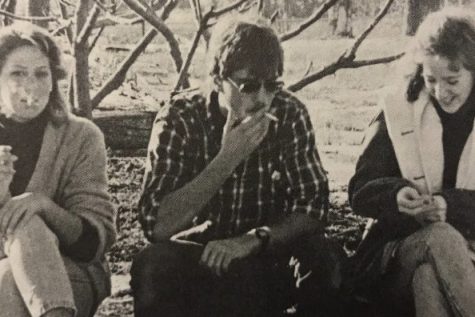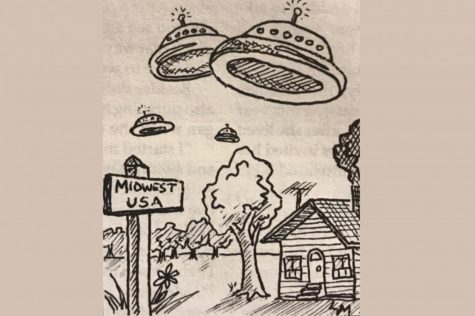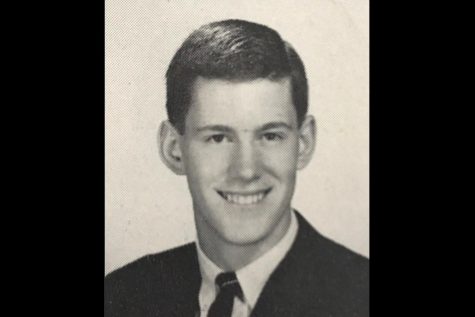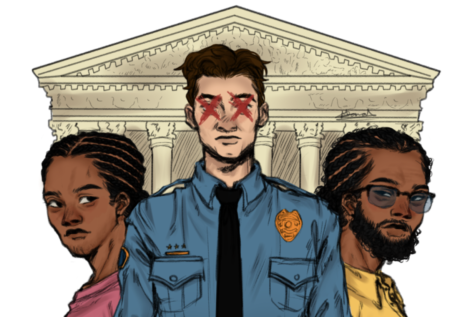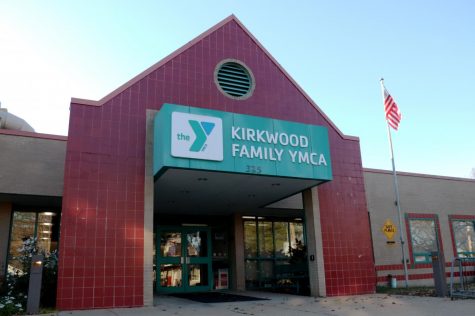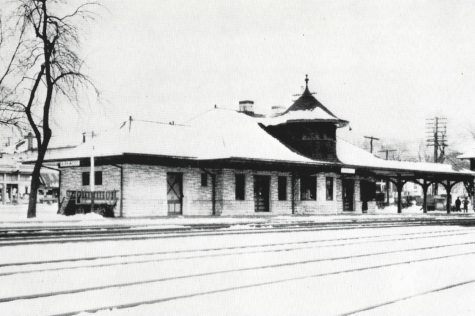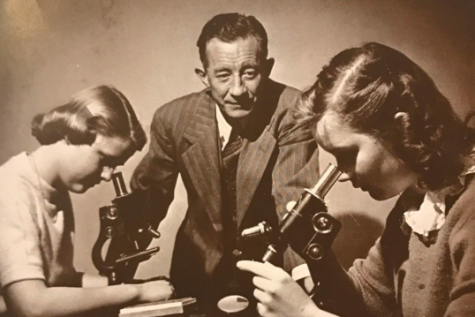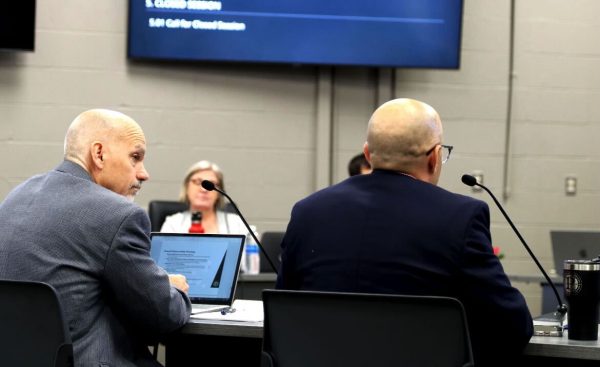An unplanned controversy, 30 years ago
In 1990, The Kirkwood Call came under fire for a controversial advertisement.
Kirkwood High School is no stranger to controversy. It’s not every day that it makes the national news. But in autumn, 1990, that was not the case. In fact, the controversy at the time was so large that Franklin McCallie, former principal of KHS, said he could write an entire book about it.
“We were told that Planned Parenthood sent out 80 requests for an advertisement in school newspapers that they would pay for,” McCallie said. “Only eight were accepted. One of those was The Kirkwood Call.”
The advertisement displayed said, “It’s not enough to ‘just say no.’ Say KNOW,” encouraging sex education, a sentiment McCallie supported. However, he was not aware of the advertisement’s existence in The Kirkwood Call until the St. Louis Post Dispatch reported on the issue.
“There was a big article about how Planned Parenthood had sent out this advertisement,” McCallie said in a phone interview Jan. 15, 2020. “The two schools that were cited that did accept [the advertisement] were Kirkwood and Clayton. Immediately, we began getting phone calls, and they were mainly negative [ones].”
An uproar grew with concerned parents and community members. After receiving numerous phone calls, Thomas Keating, former KSD superintendent, stepped in to resolve the issue. He told The Kirkwood Call to think about whether or not to keep the advertisement in the paper and come back to him with the answer. After a couple of days, the publication gave him the answer. They were going to keep the advertisement.
“I could tell that Dr. Keating was hearing something he had not heard before, and that is the rights of the student press,” McCallie said.
Dr. Keating changed his mind. The advertisement was allowed to stay in.
The administration was able to keep the issue quiet amongst the student body, despite the fervor of the community. Some students were unaware that it was even an issue.
“I had no idea any of this was happening,” Brent Dalrymple, KHS graduate of 1992, said. “None of the students besides [The Kirkwood Call] were concerned about it. It was an issue with the parents.”
“At the time, it caught everybody off guard,” Mike Wade, associate principal said. “There were only [a couple] people really upset by it and Franklin kind of weathered the storm. Once it settled in as a free speech [issue], everyone was OK.”
The Kirkwood Call was praised by several journalists for its willingness to not censor its students, even when given the option. In a packet written by the Journalism Education Association, they explain, “Would this have happened if Hazelwood was not in effect? Would censorship have occurred if it was any newspaper besides The Call? Perhaps. Yet The Call still won the All-American award and the George H. Gallup award that year.”
The Kirkwood Call has continued its path with praise, winning many awards and dealing with topics such as sexuality, rape and abortion. This issue crafted the standard that the Call would follow for many years to come.
Your donation will support the student journalists of Kirkwood High School. Your contribution will allow us to purchase equipment and cover our annual website hosting costs.
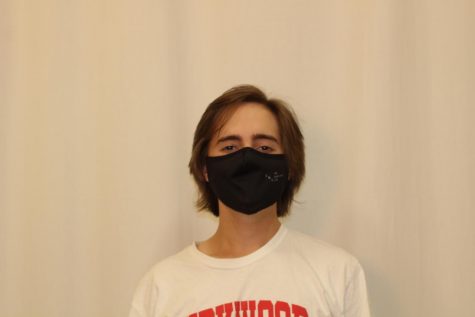
he/him
Favorite musical artist: The Smashing Pumpkins
Favorite quote: “Never put off till to-morrow what you can do to-day.” -Thomas Jefferson
Favorite...

he/them
Hobbies and Interests: I love reading, drawing, hanging out with friends, playing with my dogs, listening to music
Favorite Song: “World's...


